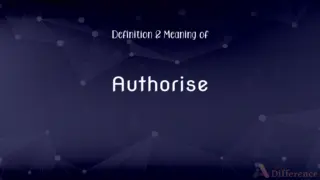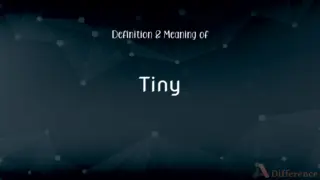Fade Definition and Meaning
By Fiza Rafique & Urooj Arif — Updated on March 6, 2024
Fade refers to the gradual loss of brightness, color, sound, or relevance over time. e.g., The colors of the fabric will fade if exposed to direct sunlight.
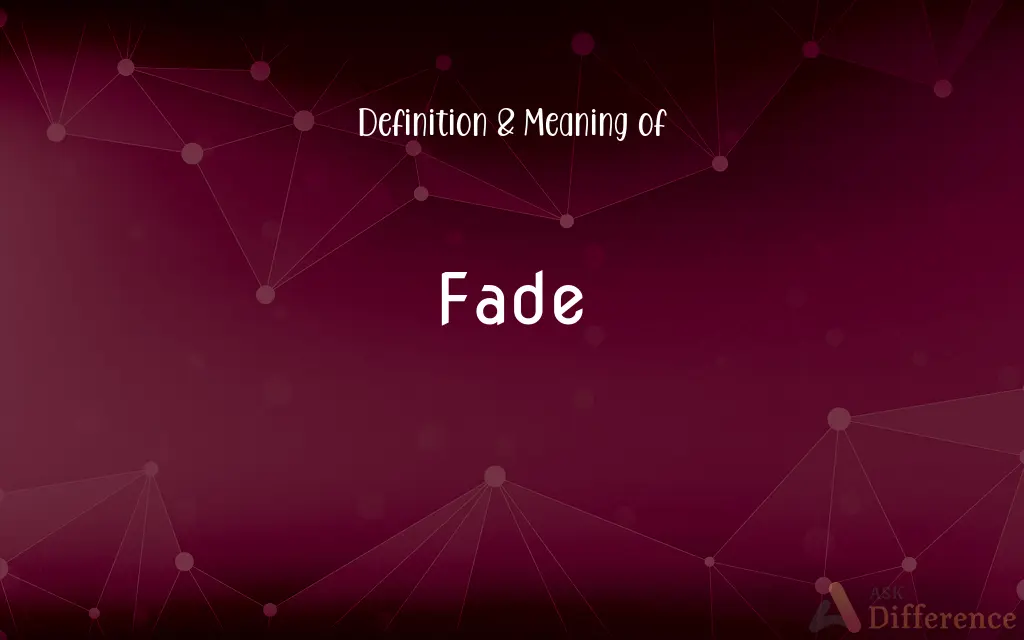
Table of Contents
Fade Definitions
To gradually disappear or become less distinct:
As she walked further away, her voice started to fade.
To lose strength or vitality:
After running the marathon, his energy quickly faded.
In audio or video, to gradually decrease in volume or intensity:
The music faded out as the movie scene ended.
To lose freshness or vigor:
The flowers started to fade just a few days after being picked.
In sports, to lose strength or effectiveness towards the end of a game:
The team's strong start began to fade in the second half.
In finance, to reduce investment or interest in a particular asset:
Investors started to fade their positions in tech stocks.
To transition smoothly from one scene or image to another in film or video editing:
The scene faded to black before transitioning to the next.
To gradually diminish in health or vitality:
His health began to fade after years of neglect.
To lose brightness or vividness of color:
The mural began to fade after years of exposure to the elements.
To become less popular or relevant over time:
The once-popular fashion trend slowly faded into obscurity.
To lose brightness, loudness, or brilliance gradually
The lights and music faded as we set sail from the harbor.
To lose freshness; wither
Summer flowers that had faded.
To lose strength or vitality; wane
Youthful energy that had faded over the years.
To disappear gradually; vanish
A hope that faded.
(Sports) To swerve from a straight course, especially in the direction of a slice.
(Football) To move back from the line of scrimmage. Used of a quarterback.
To cause to lose brightness, freshness, or strength
Exposure to sunlight has faded the carpet.
(Sports) To hit (a golf ball, for instance) with a moderate, usually controlled slice.
(Games) To meet the bet of (an opposing player) in dice.
The act of fading.
A gradual dimming or increase in the brightness or loudness of a light source or audio signal.
A transition in a cinematic work or slide presentation in which the image gradually appears on or disappears from a blank screen.
(Sports) A moderate, usually controlled slice, as in golf.
A control mechanism on a stereo that adjusts the distribution of power between the front and rear channels.
A style of haircut in which the hair is cut close to the sides and back of the head and trimmed to result in gradually longer lengths toward the top of the head.
(archaic) Weak; insipid; tasteless.
(archaic) Strong; bold; doughty.
(golf) A golf shot that curves intentionally to the player's right (if they are right-handed) or to the left (if left-handed).
A haircut where the hair is short or shaved on the sides of the head and longer on top. See also high-top fade and low fade.
(slang) A fight.
A gradual decrease in the brightness of a shot or the volume of sound or music (as a means of cutting to a new scene or starting a new song).
(slang) The act of disappearing from a place so as not to be found; covert departure.
To hit the ball with the shot called a fade.
(intransitive) To grow weak; to lose strength; to decay; to perish gradually; to wither, as a plant.
(intransitive) To lose freshness, color, or brightness; to become faint in hue or tint; hence, to be wanting in color.
(intransitive) To sink away; to disappear gradually; to grow dim; to vanish.
The milkman's whistling faded into the distance.
(transitive) To cause to fade.
To bet against (someone).
Weak; insipid; tasteless; commonplace.
His masculine taste gave him a sense of something fade and ludicrous.
To become fade; to grow weak; to lose strength; to decay; to perish gradually; to wither, as a plant.
The earth mourneth and fadeth away.
To lose freshness, color, or brightness; to become faint in hue or tint; hence, to be wanting in color.
To sink away; to disappear gradually; to grow dim; to vanish.
The stars shall fade away.
He makes a swanlike end,Fading in music.
To cause to wither; to deprive of freshness or vigor; to wear away.
No winter could his laurels fade.
A golf shot that curves to the right for a right-handed golfer;
He took lessons to cure his slicing
Gradually ceasing to be visible
Become less clearly visible or distinguishable; disappear gradually or seemingly;
The scene begins to fade
The tree trunks are melting into the forest at dusk
Lose freshness, vigor, or vitality;
Her bloom was fading
Disappear gradually;
The pain eventually passed off
Become feeble;
The prisoner has be languishing for years in the dungeon
Fade Snonyms
Wane
To decrease in vigor, power, or size; become weaker.
The moon wanes after the full moon.
Diminish
To become less bright, intense, or strong.
The lights in the city slowly diminished as dawn approached.
Disappear
To vanish from sight.
The ship disappeared over the horizon.
Dwindle
To diminish gradually in size, amount, or strength.
The food supplies dwindled day by day.
Decline
To diminish in strength or quality; deteriorate.
His health began to decline after the accident.
Ebb
To gradually lessen or reduce.
His enthusiasm for the project ebbed away.
Vanish
To disappear suddenly and completely.
The magician made the coin vanish from his hand.
Dissipate
To disperse or scatter.
The fog dissipated as the sun rose.
Disintegrate
To break up into small parts, typically as the result of impact or decay.
The old manuscript disintegrated when touched.
Wither
To shrink, fade, or decay.
The flowers withered in the intense heat.
Fade Idioms & Phrases
Fade into the background
To become less noticeable or retreat into obscurity.
She preferred to fade into the background at social gatherings.
Fade to black
A film or video technique where the image gradually darkens to black.
The dramatic scene ended as it faded to black.
Fade into insignificance
To become unimportant or irrelevant.
His early mistakes faded into insignificance as he improved.
Fade out
In audio or video, to gradually decrease in volume or brightness until disappearing.
The song faded out, ending the album.
Not fade away
To endure, persist, or remain strong over time.
Their friendship did not fade away, even after many years apart.
Fade away
To gradually disappear or become less noticeable.
The sound of the music faded away into the night.
Let it fade
To allow something to diminish or become less intense intentionally.
Rather than arguing, he chose to let the anger fade.
Fade from view
To disappear from sight.
The boat slowly faded from view as it sailed into the fog.
Fade in
To gradually increase in volume or brightness in audio or video productions.
The movie began with the sound of waves fading in.
Fade to nothing
To diminish completely or become insignificant.
The trail eventually faded to nothing, leaving us lost.
Fade from memory
To gradually be forgotten over time.
Over the years, the details of that day began to fade from memory.
Fade with time
To diminish or lose intensity as time passes.
The pain of the loss faded with time.
Fade into the woodwork
To blend into the surroundings and go unnoticed.
He preferred to fade into the woodwork at parties.
Fade into obscurity
To become unknown or forgotten over time.
Many one-hit wonders eventually fade into obscurity.
Fade from the spotlight
To no longer be in the center of public attention.
After her last movie, she faded from the spotlight.
Fade from grace
To lose status, respect, or prestige.
The once-celebrated athlete faded from grace after the scandal.
Fade Example Sentences
As the movie ended, the scene started to fade to black.
The memories of that summer began to fade as years went by.
She watched the ship fade from view as it sailed into the horizon.
The vibrant colors of the mural began to fade after years of exposure to the sun.
He could see the ink on the page start to fade as it got wet.
The vibrant colors of the sunset slowly began to fade.
The echoes of their laughter seemed to fade into the distance.
The hopes of winning the championship began to fade after the key player got injured.
With time, the pain in her heart started to fade away.
As the evening progressed, the party's noise started to fade.
The light from the candle started to fade as it burned down to a stub.
The chances of finding a solution began to fade as hours turned into days.
The sound of the music began to fade as she walked away from the festival.
The graffiti on the wall had started to fade, making it hard to read.
Her enthusiasm for the project seemed to fade after encountering numerous obstacles.
His determination did not fade, even in the face of adversity.
Common Curiosities
How do we divide fade into syllables?
Fade is a single syllable word and is not divided.
Why is it called fade?
It's called "fade" because it describes a gradual change or disappearance, often visually or audibly.
How many syllables are in fade?
There is 1 syllable in "fade."
How is fade used in a sentence?
As the evening progressed, the light began to fade.
What is the verb form of fade?
"Fade" itself is the base verb form.
What is the first form of fade?
The first (base) form is "fade."
What is a stressed syllable in fade?
In "fade," the entire word forms the stressed syllable since it is monosyllabic.
What is the pronunciation of fade?
Fade is pronounced as /feɪd/.
What is the third form of fade?
The third (past participle) form is "faded."
What part of speech is fade?
"Fade" is primarily used as a verb.
What is the root word of fade?
The root of "fade" comes from the Old French "fader" and Latin "fadare," meaning to wither.
Is fade a vowel or consonant?
The word "fade" starts with a consonant.
Is the fade term a metaphor?
"Fade" can be used metaphorically to describe a gradual decrease or loss in non-physical contexts.
Is the word “fade” a Direct object or an Indirect object?
"Fade" is primarily a verb and does not serve as a direct or indirect object. However, as a noun, it could potentially be a direct object in sentences like "The photographer captured the fade of the light."
What is the second form of fade?
The second (past simple) form is "faded."
What is another term for fade?
Another term for "fade" is "diminish."
What is the singular form of fade?
"Fade" remains unchanged as it is a verb; its singular form is "fade."
What is the plural form of fade?
As a verb, "fade" does not have a plural form. As a noun, its plural can be "fades."
Is fade an adverb?
"Fade" is not an adverb.
Is fade a negative or positive word?
"Fade" is often considered negative as it implies a reduction or loss, but context can influence its connotation.
Which conjunction is used with fade?
Conjunctions such as "and," "but," or "as" can be used with "fade" to connect it to other ideas in a sentence.
Is fade a noun or adjective?
"Fade" is primarily a verb but can also be used as a noun in specific contexts.
Is fade an abstract noun?
As a noun, "fade" can be considered abstract since it refers to a process or change not physically tangible.
Is fade a countable noun?
As a noun, "fade" is generally uncountable, referring to the concept or process of fading.
Is fade a collective noun?
"Fade" is not a collective noun.
Is the word fade imperative?
"Fade" can be used in the imperative mood as a command, e.g., "Fade the lights."
Which determiner is used with fade?
Determiners like "the" or "a" can be used with "fade" when it's used as a noun, e.g., "The fade of the light was beautiful."
Which vowel is used before fade?
Typically, no vowel is specifically used before "fade," but an article like "a" or "the" can precede it in a sentence.
Which preposition is used with fade?
Prepositions like "into," "out of," and "away" are commonly used with "fade," depending on the context.
Which article is used with fade?
The definite article "the" or the indefinite article "a" can be used with "fade" when it functions as a noun.
What is the opposite of fade?
The opposite of "fade" could be "brighten" or "intensify."
Is the word fade Gerund?
The gerund form of "fade" is "fading," which acts as a noun.
Share Your Discovery
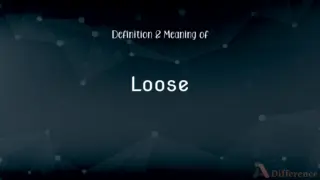
Previous Term
Loose Definition and Meaning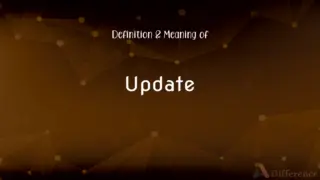
Next Term
Update Definition and MeaningAuthor Spotlight
Written by
Fiza RafiqueFiza Rafique is a skilled content writer at AskDifference.com, where she meticulously refines and enhances written pieces. Drawing from her vast editorial expertise, Fiza ensures clarity, accuracy, and precision in every article. Passionate about language, she continually seeks to elevate the quality of content for readers worldwide.
Co-written by
Urooj ArifUrooj is a skilled content writer at Ask Difference, known for her exceptional ability to simplify complex topics into engaging and informative content. With a passion for research and a flair for clear, concise writing, she consistently delivers articles that resonate with our diverse audience.







